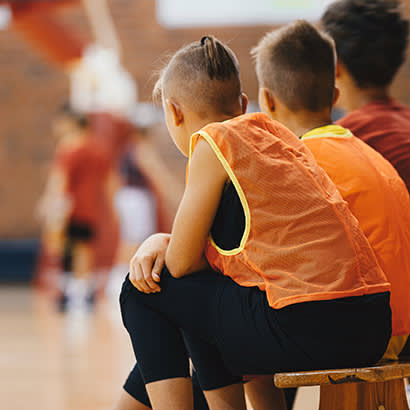
In communities across the nation, youth sports programs are more than just physical activities — they're catalysts for positive change. Typically operated by park and recreation departments, these programs foster improved physical health, social development and community cohesion. They provide accessible sport opportunities that can shape the trajectory of young lives, particularly for those who might otherwise miss out.
However, a critical question emerges: Are these invaluable programs truly reaching all youth equitably? Many agencies grapple with the challenge of providing equal access, especially to under-resourced populations. Recognizing this crucial gap, the National Recreation and Park Association (NRPA) has stepped forward with a trio of innovative grant opportunities:
1. Advancing Gender Equity in Youth Sport Community of Practice
2. Youth Sports Equity Grant Program
3. Million Coaches Challenge Grant
These grants are not merely funding opportunities; they represent a commitment to utilizing systems changes to transform the landscape of youth sport. These funding opportunities offer park and recreation agencies the tools to reimagine their programs, break down barriers, and open doors for all young athletes, regardless of their background or circumstances.
Why It Matters
The importance of equitable access to youth sports extends far beyond the playing field. It's about creating opportunities that can change life trajectories, build stronger communities and foster a more inclusive society. When we ensure that all young people have the chance to participate in sports, we're investing in the future of our communities and our nation.
Consider the ripple effects of a truly inclusive youth sports program:
- A young girl finds her confidence and leadership skills on the basketball court, skills that will serve her well throughout her life.
- A child from a low-income family discovers a passion for swimming, creating a gateway to new horizons and possibilities.
- A coach learns to create an inclusive environment for LGBTQIA+ youth, fostering a sense of belonging that extends beyond the team.
These grants, offering financial support ranging from $20,000 to $100,000 in cash and in-kind donations, provide agencies with the resources to turn such scenarios into reality. They enable the implementation of targeted initiatives that can dramatically increase participation among underserved groups, enhance program quality, improve facilities, and provide invaluable training for coaches and staff.
However, the impact doesn't stop at the individual or even the community level. By participating in these grant programs, agencies have the opportunity to contribute to a larger movement toward equity in sport. They become part of a nationwide effort to build more equitable communities, creating a ripple effect that can influence policies, change perceptions, and expand opportunities far beyond their immediate reach.
The NRPA Youth Sports Equity Grants are more than just funding opportunities — they're a call to action. They challenge us to envision a future where every young person, regardless of their gender, race, sexual orientation, economic status or ability, has the opportunity to experience the transformative power of sports. In doing so, we are not only improving sports programs; we're fostering a lasting positive impact on the lives of young people across the nation and contributing to the creation of a more equitable and inclusive society.
As we consider the potential for change that lies within each grant opportunity, we must ask ourselves: How might our agency leverage these resources to not only enhance our sports offerings but also to become a catalyst for broader social change in our community?
We'd love to hear your thoughts! How has your agency worked to promote equity in youth sports? What challenges have you faced, and what successes have you achieved? Share your experiences in the comments below.
For more details on NRPA Youth Sports Equity Grants, watch this informational webinar (passcode: 9+eK$LkC).
Brian McFadden (he/him) is a program manager at NRPA.


